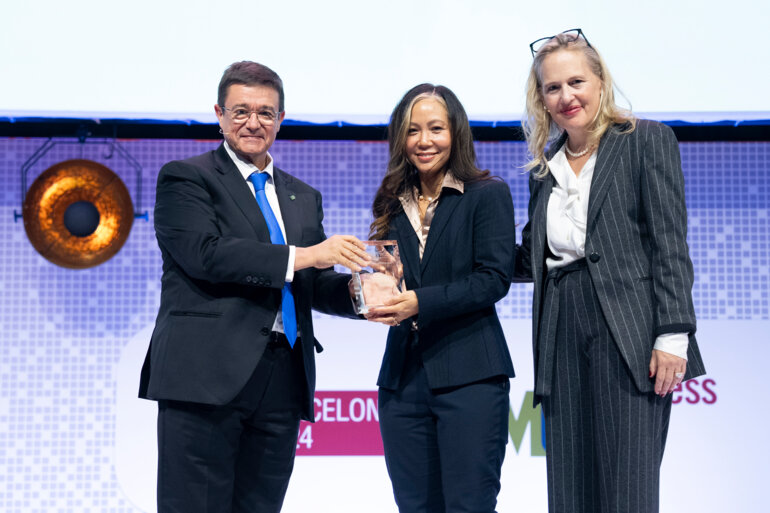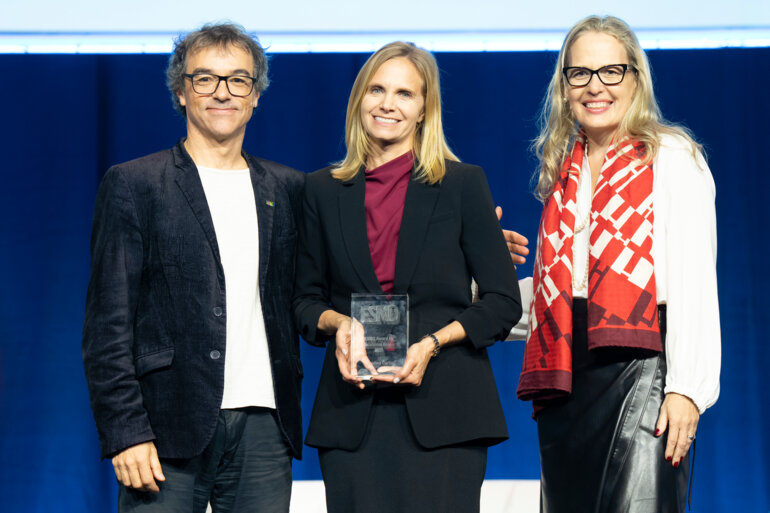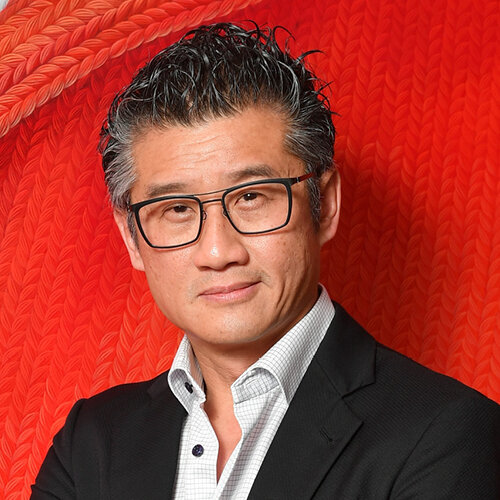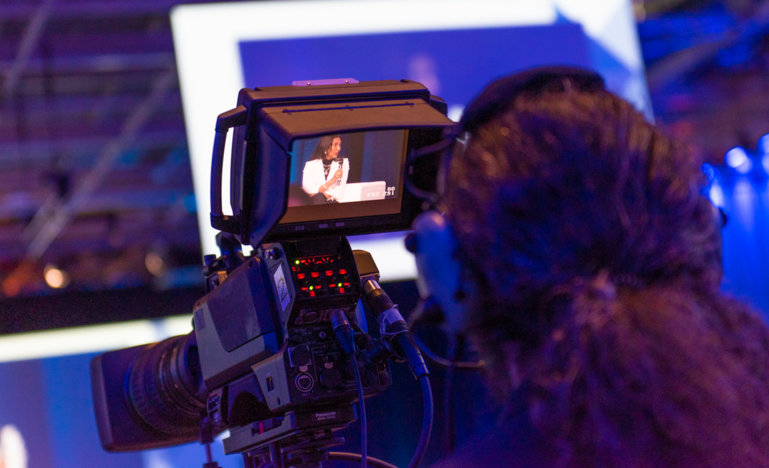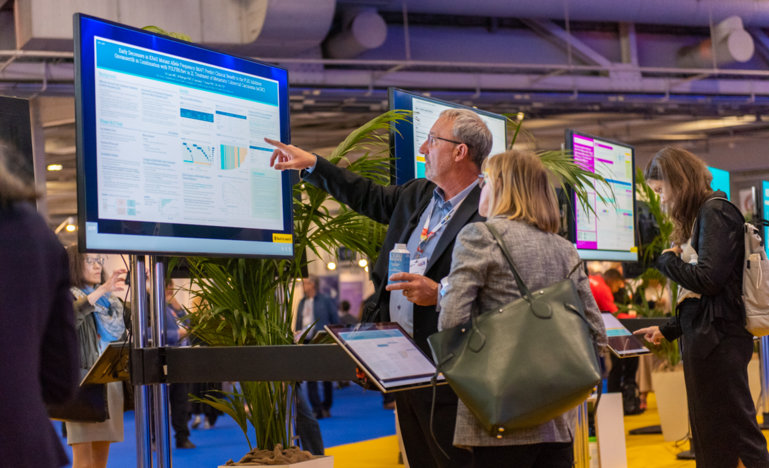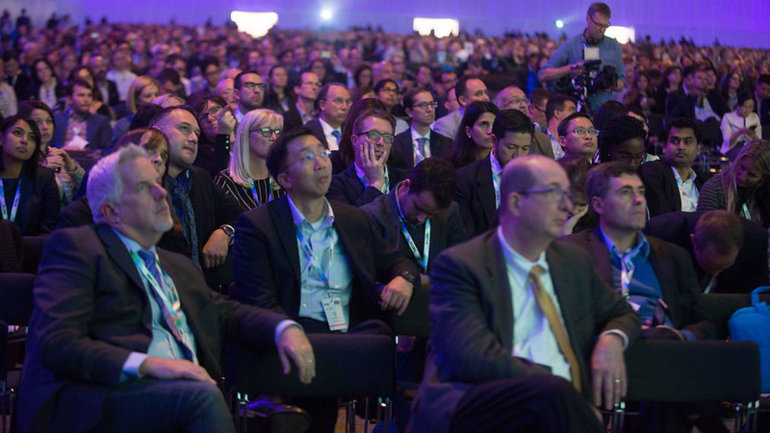According to Prof. Serena Nik-Zainal, 2024 ESMO Translational Research Awardee it is important to change the mindset of the cancer community to embrace all the information available through genome research
Prof. Serena Nik-Zainal from the Cambridge University Hospitals NHS Foundation Trust, UK, will be receiving the 2024 ESMO Translational Research Award during the ESMO Congress 2024 (Barcelona, 13–17 September) for her outstanding work in the field of translational research. Here she discusses her key contributions to the field, the current challenges and what the future holds for translational research in the cancer setting.
What do you consider to be your key career achievements to date in translational research?
I think my main achievement so far has been to gain a better understanding of how we utilise genomic information to improve treatment management. Our aim has been to use whole-genome sequencing to inform patient care – that is, to utilise all the mutations present including germline variants, somatic driver mutations and mutational signatures in the genome of a patient to help us understand their cancer (Nat Rev Cancer. 2021;21:619–637).
I believe it is important not to simply stop thinking after compartmentalising cancers into broad categories of tumour type (e.g. stomach or colorectal cancer) or even breast subtypes. Instead, we should appreciate that each patient’s tumour is highly individual. Right now, I do not think we fully utilise the information available. As part of our group’s work, we aimed to demonstrate that every tumour is distinct; for some cancers, the driver mutations or the germline mutations could be the most important aspects, but for others, a mutational signature that we did not anticipate could be crucial to impact patient outcomes. With the advent of big data, we have a lot of information available to us, but the key is to create helpful strategies of reading the genome and using the relevant data intelligently.
While I am a proponent of whole-genome sequencing, rather than it being the panacea, I believe it is just the start. It provides the foundation to deepen our understanding of what is happening in a cancer cell, how do the mutations change other physiological processes, and how do they interact with the immune system, for example. Mutations form only a part of the picture, but we must start to think about using all the information available in context to better understand how we can help patients.
What are the most important current challenges facing translational research in the cancer setting?
From my perspective, one of the key challenges is to change the mindset of the cancer community on how we use genomic information. If we think back to the completion of The Human Genome Project, with the sequencing of the first human genome, there was the promise of what genomics could bring to cancer treatment, such as targeting individual driver mutations in clinical trials. However, we have become fixated on these mutations. The reality is that cancer genomes are much more complex – patients often have more than one mutation and their tumour must be considered in its entirety, not just one mutation in one gene. We should be looking at the whole genome to fully understand what a tumour offers a patient in terms of expanding their treatment options and improving their outcomes.
This is linked to another key challenge in the cancer setting: because research is focused on targeting individual mutations, this is reflected in drug regulatory processes (the approval of tumour- or tissue-agnostic agents) and in the reimbursement of targeted therapies. I feel this could be hampering progress in the field as we think restrictively in terms of one or two mutations. Alternatively, I think we should be using the genomic data in its totality and consider the biology of tumours in a more holistic way. Data science has evolved, and we now need to adapt our regulatory frameworks to make it permissive for clinical studies to use holistic genome profiling going forward.
What are your personal goals for translational research in the cancer setting?
One ambition I hope is achieved in my lifetime is the comprehensive use of multiomic data for patients in our clinics. This goes beyond genomics to include transcriptomics, proteomics, or any molecular signal; a combined comprehensive understanding of the molecular phenotype of a tumour. Each tumour type is different of course, and over time, we will learn that some multiomic data combinations are more appropriate than others.
Another goal is to gain a better understanding of how the genome interacts with the immune system at the tumour microenvironment level, as well as at the level of the systemic, circulating host immune cells.
What does the future hold for translational research in the cancer field?
Personalised therapies are really exciting at the moment, whether for therapeutics or vaccines, but what remains to be seen is how scalable it is to expand access to these worldwide. The key will be to use technology to maximise access to personalised therapies equitably.
Another aspect I believe will be influenced by technology is our understanding of the interaction between humans and the environment. In terms of cancer research, there are knowledge gaps. We need investment in large-scale studies to understand the impact of modern living on cancer development. Most of us have smart phones and apps to collect information and data about ourselves, and information is already being collected about the weather and about various aspects of our environment, including pollen, water contamination and radiation levels, for example. The combination of human data with environmental data could be a very powerful tool to help us explore the way modern life is influencing our health and allow us to understand why cancer incidence is changing across modern populations, and how we might intervene earlier.
Programme details
Nik-Zainal S. ESMO Translational Research Award lecture: From bytes to bedside using mutational signatures in cancer. ESMO Congress 2024
Opening Session, 13.09.2024, h. 12:00 – 13:45, Barcelona Auditorium – Hall 2


